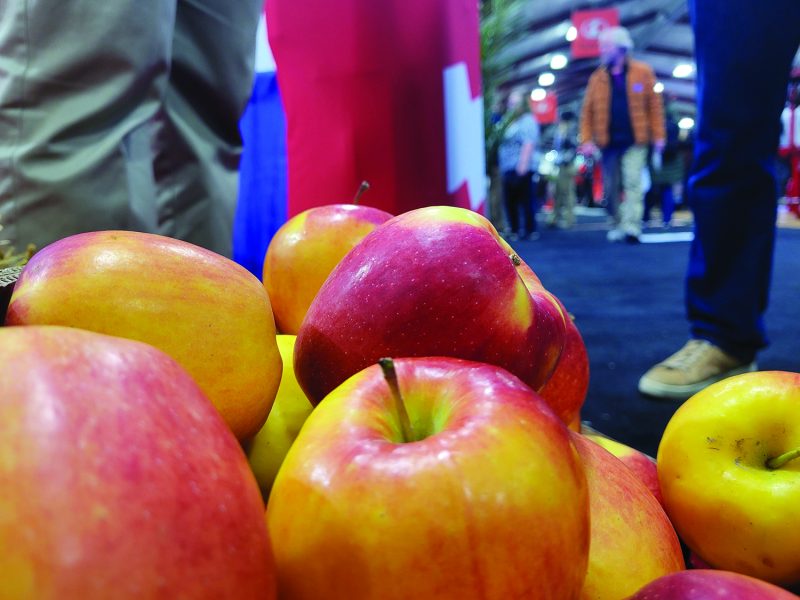KELOWNA – Apple growers could decide whether or not a marketing commission will be developed for their sector as early as April, following a series of public meetings in January.
More than 200 growers attended information sessions held January 8-10 in Vernon, Kelowna, Summerland, Oliver and Cawston as well as online, and a summary report of the discussions has been prepared.
“The project management committee accepted the report on February 13, and this completes the first phase of the work,” says Glen Lucas, general manager of the BC Fruit Growers Association. “I’m pleased with how many participants we had, 203 altogether, which I believe is about two-thirds of the apple grower community.”
The report notes that there is agreement on a need for change, but not necessarily how to do it.
“Both growers and packers agree that something needs to change, or the BC apple industry will get worse,” the report says. “There is significant support from the majority of growers and some of the packers to move forward with a deeper analysis of an apple marketing commission and how it could benefit the apple industry.”
The primary source of opposition to the proposal is from independent packers, who are concerned about the possible enforcement powers of a marketing commission and the potential restrictions on their operations.
However, all sides agree the industry needs an effective strategy to hold its own against retailers and imports.
“There is a general consensus that the BC apple brand was strong in the past but no longer has the same market impact as there is no generic marketing for BC apples,” the report says. “There is also a general consensus that the BC apple industry needs a mechanism to deal with the power of retailers and US imports.”
A marketing commission could implement an import levy and the organizational structure to apply for government funding, in particular to undertake local, regional and national marketing campaigns.
Growers like the concepts of quality standards and enforcement, as well as the transparency that a marketing association would bring.
The downsides include more rules and regulations. Many growers also question whether a commission would be able to achieve the desired outcomes, particularly the ability to impact retail buying practices and directly improve grower returns.
“Each meeting was different,” Lucas notes. “The discussions evolved in different ways, but it was clear that the growers were informed and had opinions about the proposal. There were some who are strongly opposed, and some who are strongly in favour, but most are kind of in the middle.”
A good deal of questions remain. The structure and powers of a commission have yet to be defined, not to mention its operating budget and the levy registered growers would have to pay to support it.
“It’s clear that there needs to be more information and more discussion to help growers make a decision,” Lucas says. “That is one of the recommendations of the report.”
In accepting the report, the project management committee appointed and funded by the province as part of its tree fruit stabilization initiative (its membership is not disclosed), recommended that answers to the outstanding questions be communicated to growers and packers, and that further meetings be held prior to moving forward with a vote on the commission proposal in April.
BCFGA will lead the rest of the process, Lucas says.
“The BCFGA board has approved a budget to facilitate the next steps.” he says. “That includes the hiring of consultants to continue to inform growers and to develop a grower registry and oversee a vote if there is one.”
Lucas says it’s important to note that the BCFGA is advocating for growers, not the commission.
“What the growers decide either way for me is a win, as long as they have the right information to make an informed and independent decision,” he says.
Although he retires March 1, Lucas has promised to see BCFGA’s work on the commission proposal through to a grower vote.


 New abattoir offers lifeline to local farmers
New abattoir offers lifeline to local farmers